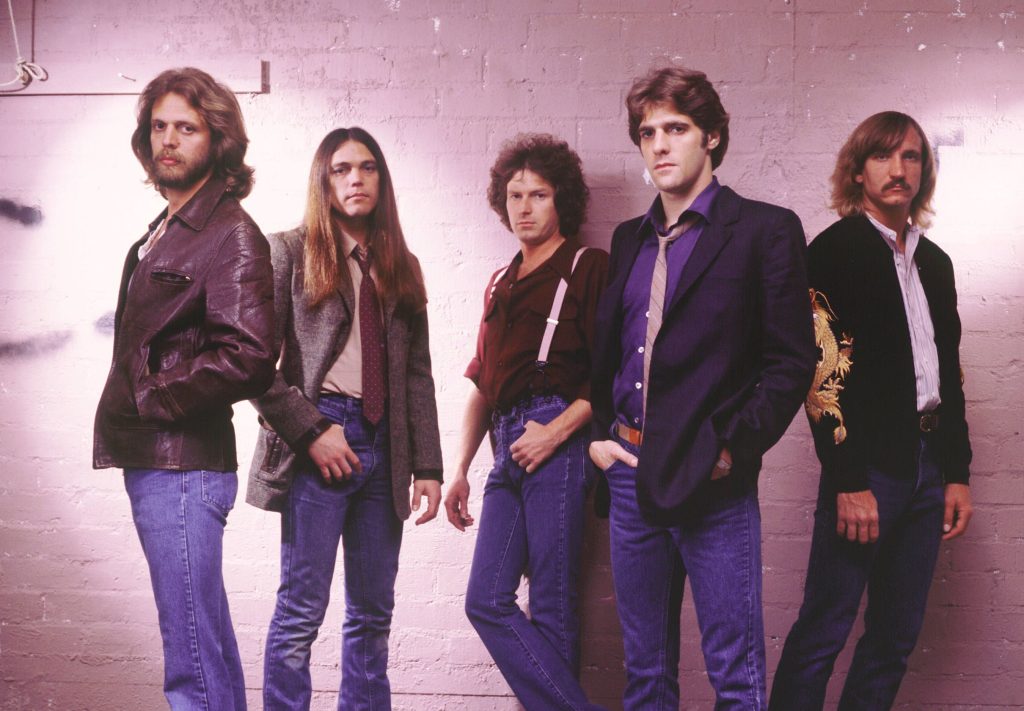
A Warm Plea for Holiday Reunion: A Timeless Christmas Classic
The Eagles’ “Please Come Home for Christmas” is more than just a Christmas song; it’s a warm embrace of holiday longing, a heartfelt plea for the comfort of togetherness during a season defined by family and love. Originally written and performed by blues singer Charles Brown in 1960, the Eagles’ 1978 rendition breathed new life into this classic, embedding it even deeper into the fabric of Christmas tradition.
This wasn’t a chart-topping, number-one hit, but its impact transcends mere chart performance. The Eagles’ version, released as a single (with “Funky New Year” as the B-side), reached number 18 on the Billboard Hot 100 during the holiday season of 1978. While it didn’t reach the pinnacle of the charts, it secured a permanent place in our hearts, becoming a staple of Christmas radio airplay and a beloved holiday standard.
The song’s story begins with Charles Brown, a blues pianist and vocalist whose gentle, almost melancholic style perfectly captured the essence of yearning for home during Christmas. Brown’s original recording is imbued with a bluesy sadness, reflecting the loneliness many feel during the holidays. The Eagles, known for their impeccable harmonies and polished production, took this core emotion and refined it, adding their signature West Coast rock sound.
The brilliance of the Eagles’ version lies in their ability to retain the song’s inherent sentimentality while giving it a contemporary feel. Don Henley’s lead vocals are tender and vulnerable, conveying the deep desire expressed in the lyrics. The band’s signature harmonies, especially the backing vocals, create a warm and enveloping atmosphere, reminiscent of gathering around a fireplace on a cold winter’s night. This is not just a performance; it’s an emotional experience.
Consider the opening lines: “Bells will be ringing the sad, sad news / Oh, Christmas won’t be the same without you.” These words immediately establish a sense of loss and longing. The imagery of ringing bells, traditionally associated with celebration, being described as delivering “sad, sad news” is a poignant juxtaposition that resonates deeply. It speaks to the very human experience of missing loved ones during a time meant for joy. It is this contrast that gives the song its emotional weight, tugging at our heartstrings and reminding us of the importance of connection during the holidays.
For those of us who remember the late ’70s, the Eagles’ version of this song evokes a specific kind of nostalgia. It’s the sound of Christmases past, filled with the warmth of analog recordings, the glow of Christmas tree lights reflected on vinyl records, and the anticipation of family gatherings. It connects us to a simpler time, before the digital age, when music held a different kind of magic. The song’s timeless appeal bridges generations, connecting older listeners with cherished memories and introducing younger audiences to a classic that embodies the spirit of the season. It’s a reminder that despite the passage of time and the changes in musical trends, the fundamental human emotions of love, longing, and the desire for connection remain constant, especially during the holidays.
In conclusion, Eagles’ “Please Come Home for Christmas,” while an interpretation of Charles Brown’s original masterpiece, is a testament to the band’s artistry and their ability to connect with listeners on an emotional level. It’s a Christmas classic that continues to resonate with audiences of all ages, a timeless reminder of the true meaning of the holiday season: being with those we love. It serves as a powerful reminder of home, of family and friendship, especially meaningful during the holidays. It stands as a tribute to the band’s capacity to create music that lasts, music that becomes an integral part of our lives and our memories. It’s more than just a song; it’s a shared experience, a collective memory, a warm and comforting presence during the most wonderful time of the year.